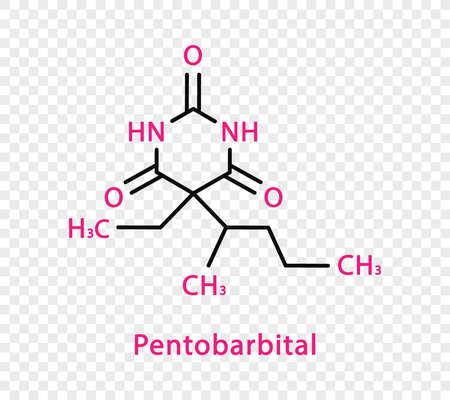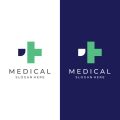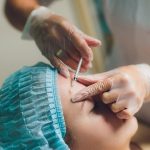1. Understanding Zinc and Its Role in Skin Health
Zinc is an essential mineral that plays a key role in many body functions, including supporting the immune system, wound healing, and maintaining healthy skin. For people with acne-prone skin, zinc can be especially helpful due to its anti-inflammatory and antibacterial properties.
What Is Zinc?
Zinc is a trace mineral found in small amounts in the body but is vital for cell growth, repair, and overall health. It’s naturally present in foods like red meat, poultry, beans, nuts, whole grains, and dairy products. Zinc can also be taken as a supplement or applied topically through creams and ointments.
Why Zinc Matters for Skin Health
Zinc supports skin health in several important ways:
- Reduces inflammation: Helps calm irritated skin and minimize redness associated with acne breakouts.
- Regulates oil production: Zinc helps control sebum (oil) production in the skin, which can reduce clogged pores.
- Kills acne-causing bacteria: It has antibacterial properties that fight P. acnes bacteria on the skin’s surface.
- Aids wound healing: Zinc speeds up the recovery of damaged skin and helps prevent scarring.
Zinc Benefits for Acne-Prone Skin at a Glance
| Benefit | Description |
|---|---|
| Anti-inflammatory | Reduces swelling and redness from acne lesions |
| Sebum regulation | Lowers excess oil that can clog pores |
| Bacterial control | Kills acne-causing bacteria on the skin |
| Tissue repair | Aids in faster healing of pimples and prevents scarring |
Zinc Levels and Acne Risk
Studies have shown that people with acne often have lower levels of zinc in their bodies. This may suggest a link between zinc deficiency and increased risk of breakouts. By ensuring your body gets enough zinc—either through diet or supplements—you may support healthier skin and reduce the frequency or severity of acne.
Zinc-Rich Foods to Support Skin Health
| Food Source | Zinc Content (per serving) |
|---|---|
| Pumpkin seeds (1 oz) | 2.2 mg |
| Lentils (1 cup cooked) | 2.5 mg |
| Cooked beef (3 oz) | 4.8 mg |
| Cashews (1 oz) | 1.6 mg |
| Dairy products (1 cup milk or yogurt) | Around 1 mg |
Getting enough zinc is an easy way to help manage acne from the inside out. In the next section, we’ll explore how zinc specifically impacts acne symptoms and why it might be a natural solution worth considering for clearer skin.
2. How Zinc Helps Combat Acne
When it comes to fighting acne, zinc is a powerhouse ingredient that works in several ways to support clear, healthy skin. Its not just a trendy supplement or skincare ingredient — it has scientifically backed properties that can help reduce breakouts and calm irritated skin. Let’s take a closer look at how zinc helps manage acne-prone skin.
Anti-Inflammatory Properties
One of the key benefits of zinc is its ability to reduce inflammation. Acne is often caused by inflamed pores, which appear as red, swollen pimples or cysts. Zinc helps soothe this inflammation, making breakouts less noticeable and less painful. This makes it especially helpful for people dealing with inflammatory acne like papules, pustules, and cystic acne.
Antibacterial Effects
Zinc also has natural antibacterial properties. Acne-causing bacteria, especially Cutibacterium acnes (formerly known as Propionibacterium acnes), thrive in clogged pores and contribute to breakouts. Zinc can help reduce the growth of these bacteria, which means fewer infections and fewer pimples.
Sebum-Regulating Function
Sebum is the natural oil your skin produces to stay moisturized. But when your body makes too much sebum, it can clog pores and lead to acne. Zinc plays a role in balancing sebum production, helping to keep your pores clear without drying out your skin.
Main Benefits of Zinc for Acne-Prone Skin
| Benefit | How It Helps |
|---|---|
| Reduces Inflammation | Soothes redness and swelling associated with acne |
| Kills Acne-Causing Bacteria | Limits bacterial growth inside pores |
| Controls Sebum Production | Prevents clogged pores by balancing oil levels on the skin |
Quick Tip:
If youre trying zinc for acne, consider both topical products like creams or serums and oral supplements — but always check with a dermatologist first to find the right option for your skin type.
![]()
3. Best Sources of Zinc for Skin Benefits
If youre dealing with acne-prone skin, adding zinc to your routine—both through your diet and skincare—can make a big difference. Zinc has anti-inflammatory and antibacterial properties that can help calm breakouts and support healthy skin function. Let’s explore the best ways to get zinc into your body and onto your skin.
Top Dietary Sources of Zinc
Your body needs zinc to repair skin tissue, regulate oil production, and support your immune system—all important factors when managing acne. Here are some common foods high in zinc that you can easily include in your meals:
| Food | Zinc Content (per serving) | Notes |
|---|---|---|
| Oysters | 74 mg (6 medium oysters) | The richest natural source of zinc |
| Beef (cooked) | 7 mg (3 oz) | A great option for non-vegetarians |
| Pumpkin Seeds | 2.2 mg (1 oz) | A popular plant-based source |
| Lentils (cooked) | 1.3 mg (1 cup) | A good vegetarian-friendly option |
| Dairy Products (milk, cheese) | 1–2 mg per serving | Easily added to daily meals |
Zinc Supplements: When Food Isn’t Enough
If you struggle to meet your zinc needs through food alone, especially if youre vegetarian or vegan, you might consider a zinc supplement. Look for forms like zinc gluconate or zinc picolinate, which are known for better absorption. Always talk to your healthcare provider before starting any supplements to make sure they’re right for you.
Zinc in Skincare Products
Zinc isnt just beneficial when eaten—it can also work wonders when applied directly to the skin. Topical zinc helps reduce redness, control oil production, and fight acne-causing bacteria.
Zinc-Based Topical Options:
- Zinc Oxide: Commonly found in sunscreens, this mineral not only protects against UV rays but also soothes irritated skin.
- Zinc Pyrithione: Used in some anti-dandruff shampoos and acne treatments due to its antibacterial properties.
- Zinc Sulfate Solutions: Often used in spot treatments to target active breakouts.
A Quick Tip:
If youre using topical zinc products, make sure they’re labeled as non-comedogenic so they won’t clog your pores. Consistency is key—use them regularly as part of your skincare routine for the best results.
Zinc offers a gentle yet effective way to support clearer skin from the inside out. Whether youre loading up on zinc-rich foods or applying it topically, it’s a smart addition to any acne-fighting plan.
4. Zinc Supplements: Do They Work for Acne?
Zinc is a popular ingredient found in many skincare products, but some people also take zinc supplements to help manage acne from the inside out. If you’re dealing with breakouts and wondering whether popping a zinc pill can help, here’s what you need to know about how effective they are, how much to take, and what side effects to watch out for.
How Zinc Supplements May Help Acne
Zinc plays a key role in reducing inflammation, fighting bacteria, and regulating oil production—three major factors that contribute to acne. Some studies have shown that people with acne tend to have lower levels of zinc in their bodies compared to those with clear skin. Supplementing with zinc may help balance these levels and improve skin health over time.
Recommended Types and Dosages
There are different forms of zinc available as dietary supplements. Some types are more easily absorbed by the body than others. Heres a quick comparison:
| Type of Zinc | Absorption Rate | Common Dosage for Acne |
|---|---|---|
| Zinc Picolinate | High | 30–50 mg daily |
| Zinc Gluconate | Moderate | 30–50 mg daily |
| Zinc Citrate | Moderate | 30–50 mg daily |
| Zinc Sulfate | Lower (may cause stomach upset) | 30–50 mg daily |
Most dermatologists recommend starting with 30 mg per day and adjusting based on your bodys response. It’s important not to exceed 40 mg per day unless directed by a healthcare provider, as too much zinc can interfere with the absorption of other minerals like copper.
Possible Side Effects of Zinc Supplements
While zinc is generally safe when taken at recommended levels, taking too much or using it for long periods can lead to side effects. Common issues include:
- Nausea or stomach cramps (especially on an empty stomach)
- Copper deficiency if taken in high doses over time
- Metallic taste in the mouth
- Headaches or fatigue in rare cases
If you experience any side effects, reduce your dosage or stop taking the supplement and consult your doctor.
Who Should Consider Zinc Supplements?
Zinc supplements may be helpful for people who:
- Have moderate to severe acne that hasn’t responded well to topical treatments
- Eat a diet low in zinc-rich foods like meat, shellfish, nuts, and whole grains
- Suffer from hormonal acne or inflammatory breakouts
If youre thinking about trying zinc supplements for your acne, its always best to speak with a dermatologist or healthcare provider first to make sure its right for you.
5. Tips for Incorporating Zinc into Your Skincare Routine
If youre dealing with acne-prone skin, adding zinc to your daily routine can be a game-changer. Zinc helps reduce inflammation, regulate oil production, and fight acne-causing bacteria. Here’s how you can include zinc in your skincare regimen through topical products, supplements, and dietary changes.
Topical Zinc Skincare Products
Zinc-based skincare products are easy to use and can directly target acne-prone areas. Look for these common forms:
| Product Type | Common Zinc Ingredient | How It Helps |
|---|---|---|
| Zinc Oxide Sunscreen | Zinc Oxide | Protects from UV rays, reduces inflammation, and soothes the skin |
| Spot Treatments | Zinc Sulfate or Zinc PCA | Targets active breakouts and reduces redness |
| Face Washes or Serums | Zinc PCA | Controls oil production and prevents clogged pores |
Pro Tip:
If youre using other active ingredients like retinol or salicylic acid, introduce zinc products slowly to avoid irritation.
Zinc Supplements
Taking zinc orally can support your skin from the inside out. However, its important not to overdo it.
Recommended Daily Dosage:
The general recommended amount for adults is 8-11 mg per day. Always check with your healthcare provider before starting any supplement.
| Supplement Form | Description |
|---|---|
| Zinc Gluconate | Gentle on the stomach and commonly used for skin health |
| Zinc Picolinate | Easily absorbed by the body; good for consistent supplementation |
| Zinc Monomethionine | A highly bioavailable form often found in high-quality multivitamins |
Caution:
Too much zinc (over 40 mg/day) may lead to side effects such as nausea or lower copper levels. Balance is key.
Zinc-Rich Foods to Add to Your Diet
Your diet plays a big role in your skins appearance. Adding zinc-rich foods can naturally support clearer skin.
| Food Source | Zinc Content (per serving) |
|---|---|
| Oysters (cooked) | 74 mg (per 3 oz) |
| Beef (ground) | 5.3 mg (per 3 oz) |
| Pumpkin Seeds | 2.2 mg (per ounce) |
| Lentils (cooked) | 1.3 mg (per cup) |


